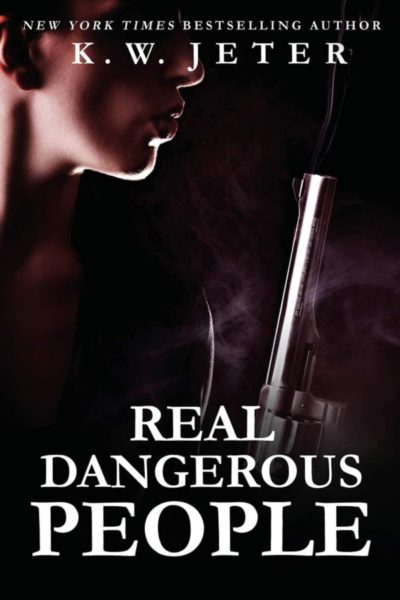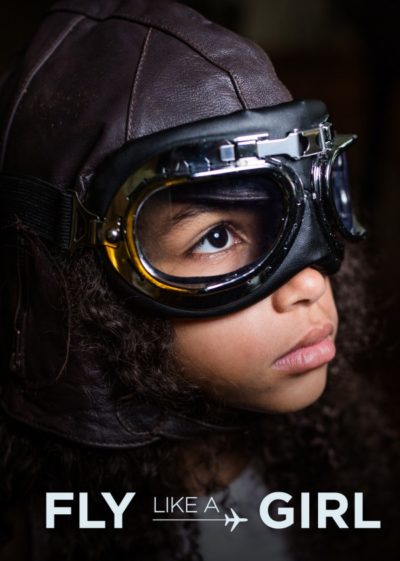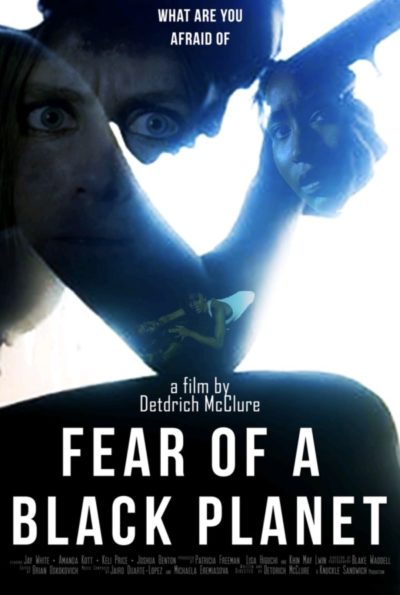 This gritty and action-packed series was originally marketed in seven volumes. The new edition condenses that to four, by combining the first six into three and designating each component in the pair as either Part 1 or Part 2, the original title of each Part 1 serving as the new book title for both. So this book counts as two series installments. That’s a felicitous arrangement, because installments 1-2 (now paired as Real Dangerous Girl) and 3-4 here both fit together nicely as two self-contained two-part story arcs, each featuring protagonist/narrator Kim but centering on a different challenge each time, that starts in Part 1 and finds its resolution in Part 2. But the books should be read in order; here, references are made to persons and events from the prior installments, and in order to fully understand who Kim and her wheelchair-bound kid brother Donnie are, their situation, and the development of her character, you really need to have read the preceding part of the canon. Warning: this review will contain “spoilers” for the previous book(s).
This gritty and action-packed series was originally marketed in seven volumes. The new edition condenses that to four, by combining the first six into three and designating each component in the pair as either Part 1 or Part 2, the original title of each Part 1 serving as the new book title for both. So this book counts as two series installments. That’s a felicitous arrangement, because installments 1-2 (now paired as Real Dangerous Girl) and 3-4 here both fit together nicely as two self-contained two-part story arcs, each featuring protagonist/narrator Kim but centering on a different challenge each time, that starts in Part 1 and finds its resolution in Part 2. But the books should be read in order; here, references are made to persons and events from the prior installments, and in order to fully understand who Kim and her wheelchair-bound kid brother Donnie are, their situation, and the development of her character, you really need to have read the preceding part of the canon. Warning: this review will contain “spoilers” for the previous book(s).
As I’d deduced and mentioned in my review of installment 1 (I read and wrote about the first two as separate books: what is now Real Dangerous Girl Part 1 and Part 2), the setting is an unnamed city in western New York state. It’s not named here either; but references to docks and ocean-going commerce point to Rochester, which is on Lake Ontario and can access the Atlantic via the St. Lawrence River. Several months have passed since the end of the previous book; it’s now winter. One reference suggests that Kim’s still 17; but she has to be getting pretty close to 18. (A credibility problem with the series is that it’s hard to fit all of her backstory into 17 years.) We’re not actually brought up to speed on the intervening events until Chapter 3, and Kim’s wry description of her new line of work as “killing people” might give the idea that she’s been working as an assassin. She hasn’t –but she has opted to make her living with her .357 rather than her calculator; and as she recognizes, the possibility of lethal violence is always present, especially given the sort of people who’ll employ her.
 At Cole’s funeral, a meeting with Curt, an old acquaintance of his that he’d recommended her to, led to a three-month gig in “security” for one Mr. Falcone, another mobster like her former employer, who now prefers to be called Mr. Falcon since he’s looking to shed his Mafia image; also like the late Mr. McIntyre, he’s moving to position himself as more plausibly “legitimate.” (So “security” work for him involves dealing with his double-crossing employees, and attacks by thugs working for his equally shady rivals.) Near the beginning of this book, she’s invited to join his personal bodyguard team, where a sudden vacancy has opened up. But the way it opened up isn’t encouraging…. Since there are a couple of more books in the series, we know that our girl’s going to make it home at the end of the day. But she doesn’t have any such assurance, and the chances of this job ending with a tag on her toe look pretty real. She needs the money, though, since failing to provide for Donnie isn’t an option she’ll accept; and she’s about to face another unexpected existential threat to her little family unit, from a totally different quarter.
At Cole’s funeral, a meeting with Curt, an old acquaintance of his that he’d recommended her to, led to a three-month gig in “security” for one Mr. Falcone, another mobster like her former employer, who now prefers to be called Mr. Falcon since he’s looking to shed his Mafia image; also like the late Mr. McIntyre, he’s moving to position himself as more plausibly “legitimate.” (So “security” work for him involves dealing with his double-crossing employees, and attacks by thugs working for his equally shady rivals.) Near the beginning of this book, she’s invited to join his personal bodyguard team, where a sudden vacancy has opened up. But the way it opened up isn’t encouraging…. Since there are a couple of more books in the series, we know that our girl’s going to make it home at the end of the day. But she doesn’t have any such assurance, and the chances of this job ending with a tag on her toe look pretty real. She needs the money, though, since failing to provide for Donnie isn’t an option she’ll accept; and she’s about to face another unexpected existential threat to her little family unit, from a totally different quarter.
As noted above, Kim’s character is developing, and not always in ways that please her. (In fact, some developments concern and scare her.) The criminal underworld she originally entered unwittingly when she landed a job with McIntyre’s now defunct organization has become pretty much her default environment. That’s partly because no legitimate business will hire her as an accountant with no formal credentialling, even if she’s good at it, but also because, though she doesn’t like to admit it to herself, at one level she thrives on the excitement, empowerment and adrenaline rush of life in warrior mode; and she takes fierce pride in being equally good at that. Thanks to Cole’s training, she’s a very accurate, quick-reflexed markswoman, and strong and agile despite her petite stature. (And she can now kill without batting an eye –though that’s a development she fully realizes is problematical.) This career choice puts her on a tightrope between the demands of her job and her moral instincts; the tension of walking it can make her cry and vomit at times. Shades of grey often define her alternatives; there’s a lot of food for thought here in terms of moral reflection, as there often is in this genre. That’s implicit in the story, though, not embodied in explicit struggles in Kim’s mind; survival generally dictates her choices, and the one here that many readers will most intensely disagree with and disapprove of is one she makes instantly and without having to agonize over at all. (Having a family of my own, I totally understand why she doesn’t have to.)
There’s no sex, licit or illicit, in this book (or the prior installments). Kim’s not without interest in sex; but like most teens, she sees herself as unattractive. She’s never pursued a relationship, and she’s taken to heart Cole’s advice that the best option for a hired gun is celibacy. (Though given that he was in a long-term relationship with a live-in girlfriend, he failed to practice what he preached.) Compared to the prior installments, there’s an increase in bad language here, including some use of the f-word and religious profanity, though Jeter’s use of it is still restrained compared to many writers who depict this milieu. (Kim’s own language isn’t as bad as that of her colleagues, though if I were her dad I’d still call her on some of it.) In fairness, given the kind of characters we’re dealing with, the language isn’t unrealistic. Violence comes with this territory; several people here exit the world with bullets in their bodies (some of them by Kim’s hand). But none of them are particularly nice people who would elicit any tears from the average reader; I can safely promise that “no innocents were harmed in the writing of this book.” :-)
In terms of literary quality, this is a highly gripping and emotionally evocative read, and a fast-paced one. Depiction of well-drawn, nuanced characters is one of the author’s strengths; Kim herself is a vital bundle of three-dimensioned nuance, but all of the cast here come to life. (Most aren’t especially likable, except for Donnie and Mae, but I do like Kim and root for her, despite her rough edges; Jeter lets me understand where she’s coming from, and her narrative voice makes me empathize with her.) There’s also more of a mystery element here than in the previous story arc, though I still classify this as action-adventure rather than mystery. It has to be said, though, that this book isn’t as well crafted as the preceding. There are editorial issues, some minor. but several more serious. In places details, plot elements and conversations are inconsistent with things written before, which can fray (though not break) the thread of the plot. (The worst of these is where a character dies in one chapter, but reappears alive in the next one!) That cost the book a star; but I’d still recommend it to all readers of the first book (though not as the starting point for the series). And I most definitely intend to follow the series to its completion!
Author: K. W. Jeter
Publisher: Lincoln Square Books; available through Amazon, both for Kindle and as a printed book.
Book 2 of 4 in the Kim Oh series, containing previously available titles Real Dangerous People and Real Dangerous Place.
A version of this review previously appeared on Goodreads.
 I was going to start this with a warning to try and avoid reading other reviews of this before watching it, because it felt as if, without exception, they all included spoilers for a significant plot-point, that wasn’t actually revealed until deep into the movie. Heck, the IMDb synopsis does it too. However, having sat through the entirety of this bland piece of indigenous folk pseudo-horror, all I can say is “Meh.” You do you: it’s probably not as if it’s going to have much impact, because it’s hard to spoil something which already smells past its best before date.
I was going to start this with a warning to try and avoid reading other reviews of this before watching it, because it felt as if, without exception, they all included spoilers for a significant plot-point, that wasn’t actually revealed until deep into the movie. Heck, the IMDb synopsis does it too. However, having sat through the entirety of this bland piece of indigenous folk pseudo-horror, all I can say is “Meh.” You do you: it’s probably not as if it’s going to have much impact, because it’s hard to spoil something which already smells past its best before date.





 This is briskly entertaining, and feels like a female version of Blade, with an extra good-girl vampire as a bonus. Yet it’s definitely best not to pause and think about some aspects, because the story will likely fall apart under close scrutiny. Matters are complicated by a flashback-heavy structure, on occasion multiple levels deep, and an apparent desire to overstuff proceedings, at the expense of some elements. That said, it hangs together and is entertaining, mostly thanks to a likeable pair of lead performances. There is a decent quantity of hand-to-hand action, even if some of it does leave a little bit to be desired on the quality front.
This is briskly entertaining, and feels like a female version of Blade, with an extra good-girl vampire as a bonus. Yet it’s definitely best not to pause and think about some aspects, because the story will likely fall apart under close scrutiny. Matters are complicated by a flashback-heavy structure, on occasion multiple levels deep, and an apparent desire to overstuff proceedings, at the expense of some elements. That said, it hangs together and is entertaining, mostly thanks to a likeable pair of lead performances. There is a decent quantity of hand-to-hand action, even if some of it does leave a little bit to be desired on the quality front. What I’ll remember about this one is the arc. Not so much of any character, more as to whether or not this would qualify for the site. The story began on solid enough ground, but around the end of the first volume (this omnibus contains parts 1+2), it plummeted well below the threshold needed. I almost gave up reading at that point, but persisted, and the book did rebound with an extended, gory finale in which the heroine and her ally took on what felt like an entire city. Okay, it’s back in. But I’m not happy about it, for reasons I’ll get to in a bit.
What I’ll remember about this one is the arc. Not so much of any character, more as to whether or not this would qualify for the site. The story began on solid enough ground, but around the end of the first volume (this omnibus contains parts 1+2), it plummeted well below the threshold needed. I almost gave up reading at that point, but persisted, and the book did rebound with an extended, gory finale in which the heroine and her ally took on what felt like an entire city. Okay, it’s back in. But I’m not happy about it, for reasons I’ll get to in a bit. This documentary is about the field of women in aviation, combining archive footage with interviews, covering the range from those who aspire to fly (giving their Lego aircraft lady pilots!) to those who have been into space, fought combat missions in the Middle East or dodged death in aerobatic displays. There’s not any particular structure to proceedings, choosing instead to bounce around between its topics and subjects. This helps keep things fresh, yet at the cost of any narrative beyond, I guess, “Women can do anything men can”? Which, to be fair, deserves saying in the aviation field particularly: how much strength is needed to handle a joystick?
This documentary is about the field of women in aviation, combining archive footage with interviews, covering the range from those who aspire to fly (giving their Lego aircraft lady pilots!) to those who have been into space, fought combat missions in the Middle East or dodged death in aerobatic displays. There’s not any particular structure to proceedings, choosing instead to bounce around between its topics and subjects. This helps keep things fresh, yet at the cost of any narrative beyond, I guess, “Women can do anything men can”? Which, to be fair, deserves saying in the aviation field particularly: how much strength is needed to handle a joystick? It’s interesting to look at the film’s IMDb page, and contrast the reviews, where there’s nothing less than an 8/10, with the rating, where 73% of votes are a 1/10. One “review” was actually a rant about other reviews which appear to have been removed? Something odd there. There’s no doubt, the film is not so much tackling a contentious topic, as driving head-first into it at 80 mph. Even the title (obviously inspired by the Public Enemy LP of the same name) is an incendiary one, guaranteed to raise the hackles of many – and, to be honest, not without reason, because of the assumptions it makes. It’s a shame, since the film is at least slightly more nuanced than the title makes it seem.
It’s interesting to look at the film’s IMDb page, and contrast the reviews, where there’s nothing less than an 8/10, with the rating, where 73% of votes are a 1/10. One “review” was actually a rant about other reviews which appear to have been removed? Something odd there. There’s no doubt, the film is not so much tackling a contentious topic, as driving head-first into it at 80 mph. Even the title (obviously inspired by the Public Enemy LP of the same name) is an incendiary one, guaranteed to raise the hackles of many – and, to be honest, not without reason, because of the assumptions it makes. It’s a shame, since the film is at least slightly more nuanced than the title makes it seem. The “based on a true story” label covers a broad range of cinematic outcomes. However, a general rule of thumb is, the closer a movie stays to the facts, the less interesting the result will be. On that basis, I suspect this is a true and accurate deduction of the life of Pam Bales, and one particular incident therein. Because it’s largely lacking in excitement, and worse, seems to know it. Unless you have a fondness for watching someone trudge uphill for 30 minutes, then downhill for another sixty, I’d recommend giving this a pass. Despite some attractive scenery (Slovenia standing in for New Hampshire), there’s not enough to generate the necessary amount of drama or tension.
The “based on a true story” label covers a broad range of cinematic outcomes. However, a general rule of thumb is, the closer a movie stays to the facts, the less interesting the result will be. On that basis, I suspect this is a true and accurate deduction of the life of Pam Bales, and one particular incident therein. Because it’s largely lacking in excitement, and worse, seems to know it. Unless you have a fondness for watching someone trudge uphill for 30 minutes, then downhill for another sixty, I’d recommend giving this a pass. Despite some attractive scenery (Slovenia standing in for New Hampshire), there’s not enough to generate the necessary amount of drama or tension. I’m not 100% sure, but I suspect this may be the first film I’ve tagged as both in the “sport” and “home invasion” genres. It’s not a crossover you see every day. However, it is fair comment in this case, even if takes its own sweet time to get there. Kate Matthews (Alexy) has various bits of static in her life. Her husband, Ash (Ford), spends too much time at his Very Important job in high finance, rather than on their relationship. Daughter Susan is being a teenager. Kate just lost an archery tournament. Oh, and their house has been invaded by Reed (Nell) and her band of thugs, who are now intent on forcing Ash to transfer thirty million dollars into their offshore bank-accounts.
I’m not 100% sure, but I suspect this may be the first film I’ve tagged as both in the “sport” and “home invasion” genres. It’s not a crossover you see every day. However, it is fair comment in this case, even if takes its own sweet time to get there. Kate Matthews (Alexy) has various bits of static in her life. Her husband, Ash (Ford), spends too much time at his Very Important job in high finance, rather than on their relationship. Daughter Susan is being a teenager. Kate just lost an archery tournament. Oh, and their house has been invaded by Reed (Nell) and her band of thugs, who are now intent on forcing Ash to transfer thirty million dollars into their offshore bank-accounts. There are spells where I find myself going through a stream of mediocre movies, wondering when I’ll see something genuinely good. Then, I stumble into the likes of this, which leaves me yearning for the heady delights of mediocrity. It was in trouble right from the start, with five minutes of opening voice-over that did nothing but leave me confused. Then again, if your story requires five minutes of opening voice-over in the first place, you should probably rethink your storytelling techniques. The same could be said for a post-apocalyptic scenario in which food is in short supply, yet black pleather cat-suits are apparently easily available, in a range of sizes to fit all needs.
There are spells where I find myself going through a stream of mediocre movies, wondering when I’ll see something genuinely good. Then, I stumble into the likes of this, which leaves me yearning for the heady delights of mediocrity. It was in trouble right from the start, with five minutes of opening voice-over that did nothing but leave me confused. Then again, if your story requires five minutes of opening voice-over in the first place, you should probably rethink your storytelling techniques. The same could be said for a post-apocalyptic scenario in which food is in short supply, yet black pleather cat-suits are apparently easily available, in a range of sizes to fit all needs. This gritty and action-packed series was originally marketed in seven volumes. The new edition condenses that to four, by combining the first six into three and designating each component in the pair as either Part 1 or Part 2, the original title of each Part 1 serving as the new book title for both. So this book counts as two series installments. That’s a felicitous arrangement, because installments 1-2 (now paired as Real Dangerous Girl) and 3-4 here both fit together nicely as two self-contained two-part story arcs, each featuring protagonist/narrator Kim but centering on a different challenge each time, that starts in Part 1 and finds its resolution in Part 2. But the books should be read in order; here, references are made to persons and events from the prior installments, and in order to fully understand who Kim and her wheelchair-bound kid brother Donnie are, their situation, and the development of her character, you really need to have read the preceding part of the canon. Warning: this review will contain “spoilers” for the previous book(s).
This gritty and action-packed series was originally marketed in seven volumes. The new edition condenses that to four, by combining the first six into three and designating each component in the pair as either Part 1 or Part 2, the original title of each Part 1 serving as the new book title for both. So this book counts as two series installments. That’s a felicitous arrangement, because installments 1-2 (now paired as Real Dangerous Girl) and 3-4 here both fit together nicely as two self-contained two-part story arcs, each featuring protagonist/narrator Kim but centering on a different challenge each time, that starts in Part 1 and finds its resolution in Part 2. But the books should be read in order; here, references are made to persons and events from the prior installments, and in order to fully understand who Kim and her wheelchair-bound kid brother Donnie are, their situation, and the development of her character, you really need to have read the preceding part of the canon. Warning: this review will contain “spoilers” for the previous book(s). At Cole’s funeral, a meeting with Curt, an old acquaintance of his that he’d recommended her to, led to a three-month gig in “security” for one Mr. Falcone, another mobster like her former employer, who now prefers to be called Mr. Falcon since he’s looking to shed his Mafia image; also like the late Mr. McIntyre, he’s moving to position himself as more plausibly “legitimate.” (So “security” work for him involves dealing with his double-crossing employees, and attacks by thugs working for his equally shady rivals.) Near the beginning of this book, she’s invited to join his personal bodyguard team, where a sudden vacancy has opened up. But the way it opened up isn’t encouraging…. Since there are a couple of more books in the series, we know that our girl’s going to make it home at the end of the day. But she doesn’t have any such assurance, and the chances of this job ending with a tag on her toe look pretty real. She needs the money, though, since failing to provide for Donnie isn’t an option she’ll accept; and she’s about to face another unexpected existential threat to her little family unit, from a totally different quarter.
At Cole’s funeral, a meeting with Curt, an old acquaintance of his that he’d recommended her to, led to a three-month gig in “security” for one Mr. Falcone, another mobster like her former employer, who now prefers to be called Mr. Falcon since he’s looking to shed his Mafia image; also like the late Mr. McIntyre, he’s moving to position himself as more plausibly “legitimate.” (So “security” work for him involves dealing with his double-crossing employees, and attacks by thugs working for his equally shady rivals.) Near the beginning of this book, she’s invited to join his personal bodyguard team, where a sudden vacancy has opened up. But the way it opened up isn’t encouraging…. Since there are a couple of more books in the series, we know that our girl’s going to make it home at the end of the day. But she doesn’t have any such assurance, and the chances of this job ending with a tag on her toe look pretty real. She needs the money, though, since failing to provide for Donnie isn’t an option she’ll accept; and she’s about to face another unexpected existential threat to her little family unit, from a totally different quarter.